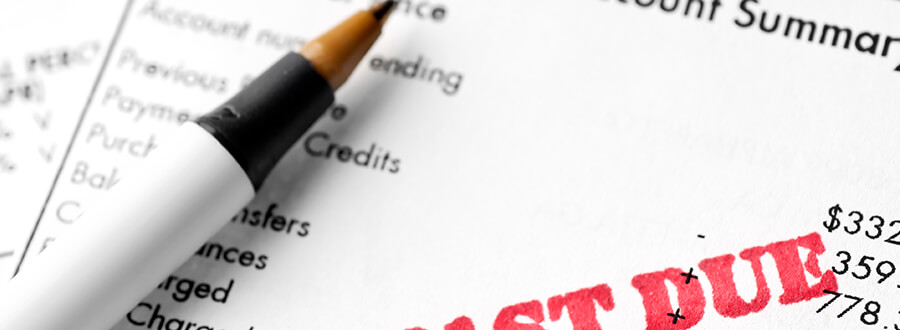Key Points
- Delinquent debt has two phases, pre-charge-off and post-charge-off. Creditors treat the stages differently, and it impacts their willingness to settle the account.
- To collect delinquent debt, creditors may use in-house collection departments, hire a collection agency to manage the account on their behalf, sell the account to a debt buyer, or settle the debt.
- Pre-charge off includes higher costs such as late fees and penalty interest that raise the account balance. After your creditor charges off the loan, fees and interest stop accruing.

This is Part 2 of a 5-part series on the lifecycle of debt. The first article, How Much is Your Debt Worth, can be found here.
Lenders specify the terms of the loan or line of credit in the account agreement, which you probably never read. In the fine print, creditors spell out what happens when you miss a payment.
Credit card companies have particularly harsh terms detailed in this agreement that gives them the right to change your interest rate and charge late fees and other penalties if you ever pay late.
Below is an explanation of the progression of your account status and what occurs when you miss payments.
Account Delinquency: When is A Payment Late?
Not all accounts have the same policies on late payments. In most cases, you have a grace period that can range anywhere from 0 to 30 days before the creditor considers the account late. Delinquency occurs when your account reaches late status based on the account agreement.
Mortgages typically give you a 15-day grace period, car loans five days, and credit cards zero.
A credit card account will be due on the same date each month. Missing the due date by a single day will result in a late fee that averages $36. At that point, the account becomes delinquent. Collection calls could immediately begin because creditors have limited ways to force payment on the debt.
What is a Loan Default and What Happens to Your Account in Default?
After two missed payments, credit card accounts reach default status, and the default interest rate kicks in. Default rates are higher than the rate for purchases and average 30%. Most companies use in-house collections to coerce payment on the account.
Once the default interest rate takes effect, you must bring the account current for six months before reverting to the original interest rate.
At this point, any activity on your part (like making a payment) could have negative consequences. A payment often leads to aggressive collection efforts because you have indicated both a willingness and the ability to pay the debt. Intermittent payments could restart the seven-year clock on your credit report if you catch up the account and later fall behind again. Each payment also renews the statute of limitations, which puts a time limit on when a creditor can sue.
When Does an Account Charge-off and What Happens to Your Debt?
After 180 days without a payment, credit card companies charge-off the account.
An account charge-off is an accounting process that takes the debt off the balance sheet and does not change the legal obligation to repay the debt. However, the value of the account declines sharply. Debt buyers only pay 0.10 to 0.20 cents on the dollar for charged-off debt, creating a more favorable view of debt settlement after missing six payments.
How Late Payment Affect Your Credit Score?
An adverse payment history will affect your score. Although, missing a payment, catching up on the account, and then missing more payments is worse.
Negative marks remain on your credit report and affect your credit score for seven years. If the first missed payment results in an account charge off, the late payment clock remains at the time of the first missed payment. When you bring the account current, miss payments, and bring it current again, the seven-year clock begins on the last missed payment.
The other important thing about your credit score is that missed payments weigh more heavily on recent activity. After a few years, late payments have significantly less impact on your credit score, provided open accounts remain current.
